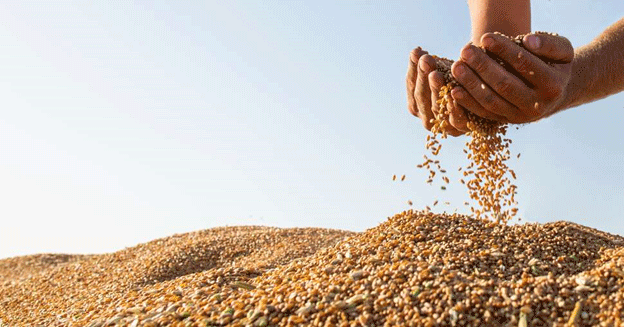Germany’s wheat production for the 2024-2025 season is forecasted to decrease by 13% compared to the previous year, with an expected yield of 18.76 million tons. This drop is attributed to prolonged periods of excessive rainfall, which negatively impacted crop development. The German Raiffeisen Association (DRV), which provided these preliminary estimates, noted that these conditions led to reduced grain quality and lower yields across many regions of the country.
This decrease in wheat production is part of a broader trend in Germany’s cereal output, which is predicted to fall by 8% overall, bringing total cereal production to 39.11 million tons. This marks the lowest production level since 2018, a year also plagued by weather extremes. The reduction in wheat, which is Germany’s primary cereal crop, is especially concerning for both domestic consumption and export markets.
Excessive rainfall throughout the 2024 growing season led to soil saturation, delayed harvesting, and increased disease pressure in wheat fields. The wet conditions caused many wheat varieties to mature later than expected, resulting in lower kernel weight and increased risk of fungal diseases like fusarium, which further deteriorated the quality of the harvest. These unfavorable conditions come at a time when global wheat supplies are already tight, driven by similar weather-related issues in other major wheat-producing countries.
The impact of the 13% reduction in wheat production will not only affect German farmers but also influence the country’s grain trade. Germany is one of the largest wheat producers in Europe and a key exporter. With lower production levels, there is concern about meeting both domestic and export demands. This may lead to higher prices on the global wheat market, which could provide some financial relief to farmers but also strain buyers, especially in import-dependent countries.
Furthermore, the decrease in total cereal production across Germany highlights the growing vulnerability of agriculture to climate variability. The 2024 harvest is a reminder of how extreme weather patterns—whether droughts or excessive rainfall—can drastically alter crop performance. As such, German farmers and agricultural policymakers are increasingly turning their attention to improving resilience through soil management, precision agriculture, and breeding programs focused on more weather-resistant crop varieties.
The cereal shortfall in Germany mirrors broader trends seen across Europe, where unpredictable weather conditions have significantly affected cereal yields. For example, France and Poland, two other major European cereal producers, also reported weather-induced challenges this season. Combined with Germany’s lower yields, Europe’s overall wheat supply could face significant strain, leading to increased imports from regions such as North America or the Black Sea.
Germany’s wheat harvest decline in 2024 serves as a stark reminder of the impact that climate variability has on agriculture. With a 13% reduction in wheat production and an overall 8% drop in cereal output, the sector faces challenges in maintaining both domestic and export supply. Looking ahead, farmers may need to adopt more resilient farming practices to mitigate the risks posed by extreme weather events.
Error




